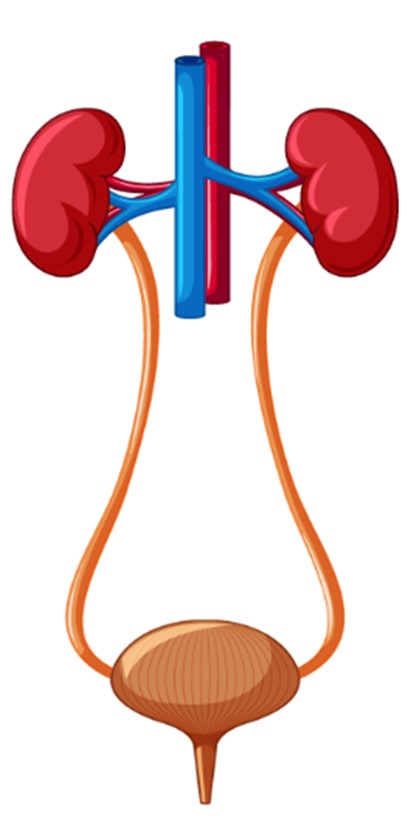Therapeutic Exosomes for Chronic Kidney Disease
The kidneys are the body's blood purifier. Once a person suffers from chronic kidney disease (CKD), untimely and incorrect treatment can lead to irreversible damage to the kidneys. With the worsening of kidney damage, CKD can easily develop into advanced uremia. CKD affects about 10% of the world's population. Currently, the main treatments for CKD are kidney transplantation and dialysis. However, these approaches are limited to slowing rather than reversing CKD progression or restoring functional nephrons. Recently, mesenchymal stem cells-derived exosomes (MSC-Exos) are a promising cell-free therapy for CKD. Creative Biolabs is an enterprise focusing on the research and development of exosome drugs, always exploring new exosome drugs with customers.
The Course of Chronic Kidney Disease (CKD)
CKD is a progressive renal structural damage and renal function damage caused by various reasons. The clinical manifestations of CKD are different degrees of elevated proteinuria, edema, hypertension, and renal damage. The early stages of CKD can be asymptomatic. When a small number of nephrons are damaged, other nephrons can compensate to perform normal kidney functions. However, when the kidneys are continuously damaged, normal nephrons cannot compensate to maintain functions such as hemofiltration that are necessary for life. According to international guidelines, CKD is defined as a glomerular filtration rate (GFR) < 60 ml/min, proteinuria >30 mg/24 h, or the presence of renal impairment lasting more than 3 months. CKD is medically divided into 5 stages, from kidney damage in stage 1 to uremia (kidney failure) in stage 5. There are many types of CKD, including primary kidney disease caused by immune, inflammatory and other factors, congenital and hereditary kidney disease, and secondary kidney disease caused by factors such as diabetes and hypertension. In addition, before entering advanced uremia, the decline of renal function and the damage to the renal structure will increase the occurrence of cardiovascular and cerebrovascular diseases. It is also a risk multiplier for people with high blood pressure and diabetes. For example, persistent proteinuria itself directly damages the cardiovascular system.

Mesenchymal Stem Cells-Derived Exosomes (MSC-Exos) and CKD
Mesenchymal stem cells (MSCs) have been reported to prevent and reverse renal fibrosis and improve renal function in animal models and human patients. However, MSC therapy is difficult to maintain a consistent source of cells with a stable phenotype. In addition, MSCs have the risk of forming tumors. Therefore, there is a need for an alternative and complication-free therapeutic strategy to MSC therapy. Much evidence supports that the therapeutic potential of MSCs is mediated by self-secreted exosomes. Numerous studies have shown that various tissue-derived MSC-Exos have significant effects on restoring renal function, enhancing autophagy, and reducing renal fibrosis. In a rat model of CKD, injection of exosomes from bone marrow mesenchymal stem cells (BMSC-Exos) significantly enhanced the expression of autophagy markers and p62 protein, and significantly inhibited fibrosis markers including TGF-β and FN. The use of adipose-derived mesenchymal stem cell-derived exosomes (AD-MSC-Exos) can also significantly improve CKD by enhancing autophagy to reduce urinary protein, serum creatinine, and blood urea nitrogen levels. A recent study demonstrated that AD-MSC-Exos directly targeted the HDAC1/ET1 axis by delivering miRNA-125a to block inflammation and renal fibrosis, which alleviated CKD.
Studies have shown that urine-derived stem cells-derived exosomes (USC-Exos) have nephroprotective effects. In addition, USC-Exos can be isolated from readily available bulk urine. Therefore, USC-Exos has a huge advantage in the treatment of CKD. Intravenous injection of USC-Exos can promote glomerular endothelial cell proliferation and angiogenesis. Another study also showed that USC-Exos delivered its miRNA-16-5p to damaged kidneys and alleviated renal impairment. In conclusion, as a novel cell-free therapy strategy, MSC-Exos therapy is expected to be used for the treatment of CKD.
Creative Biolabs can provide preliminary research and a full set of exosome-related technologies. We have experienced scientists who can follow your project throughout. Please feel free to contact us with any ideas and needs about exosome drugs to advance your research.
References
-
Valdivielso, JM.; Rodríguez-Puyol, D.; et al. Atherosclerosis in Chronic Kidney Disease: More, Less, or Just Different? Arteriosclerosis ,Thrombosis, and Vascular Biology. 2019, 39(10):1938-1966.
-
Hao, Y.; Miao, J.; et al. Mesenchymal Stem Cell-Derived Exosomes Carry MicroRNA-125a to Protect Against Diabetic Nephropathy by Targeting Histone Deacetylase 1 and Downregulating Endothelin-1. Diabetology, Metabolic Syndrome and Obesity. 2021, 14:1405-1418.
For Research Use Only. Cannot be used by patients.
Related Services:











